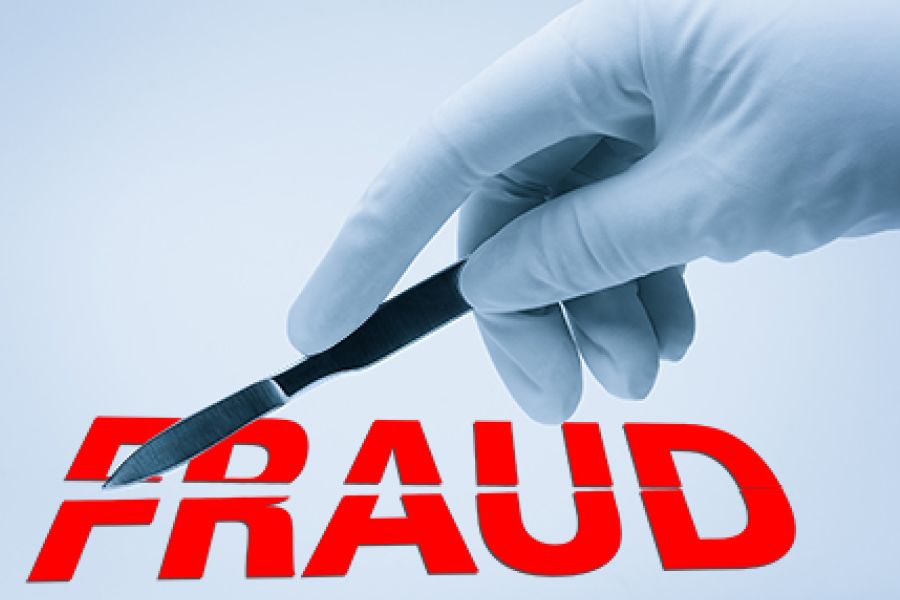One of the governing principles of the employee/employer relationship is that employees have a fiduciary duty to act in their employer’s interests. Undisclosed employee conflicts of interest can be a serious breach of this duty. In fact, when employees aren't on your side, companies often suffer financial consequences. Employee conflicts of interest: ignorance isn’t bliss Here’s a fictional example of a common conflict of interest: Matt is the manager of a manufacturing company’s purchasing department. He’s also part owner of a business that sells supplies to the manufacturer — a fact Matt hasn’t disclosed to his employer. And, in fact, Matt has personally profited from the business’s lucrative long-term contract with his employer. What makes this scenario a conflict of interest isn’t so much that Matt has profited...

According to the Association of Certified Fraud Examiners’ Report to the Nations: 2018 Global Study on Occupational Fraud and Abuse, organizations victimized by fraud lose a median $130,000. But construction companies, in particular, are even harder hit, with a median loss of $227,000. What can you do to protect your construction business? Adopt this construction company anti-fraud checklist. Construction Company Anti-Fraud Checklist: Ways to Tighten Controls An effective strategy for minimizing fraud is to tighten your internal controls. Make sure the following are part of your policies and procedures: Surprise audits and jobsite visits. These visits can not only help detect fraud, but also send a strong message that combating fraud is a priority — which is a powerful deterrent. Segregation of duties. Avoid situations in which one person...
To increase brand awareness and influence consumer behavior, businesses of all sizes spend vast amounts on social media marketing. Social media “influencers” can help companies reach and engage customers. But not all influencers operate above board. Here’s how to spot influencer fraud. And in so doing, avoid hiring or associating with a dishonest influencer. How to spot influencer fraud: The more, the better There’s no commonly accepted definition of how many followers an influencer must have to claim such status. But in general, the more, the better. After all, clients want access to as many eyes as possible. Knowing how important followers, likes and shares are, some influencers find it hard to resist the temptation to inflate their numbers. In general, they can command higher fees and attract...
Job applicants aren’t always honest on their résumés. As such, it's critical that you uncover bogus résumé claims. If you don’t investigate suspicious claims, you might end up hiring an unqualified and unethical employee — which could lead to financial, productivity and legal liability issues. The résumé fibber might also be more likely to commit occupational fraud. But how to uncover bogus résumé claims? Here are the three most common résumé falsifications. (1) Deceptive dates Whether to gloss over a termination, a period of job hopping or time spent out of the workforce, some job seekers “adjust” dates to make their employment history seem more consistent. Look closely at résumés that state employment dates in years, not months. Say an applicant claims she worked at her last job...
When people hear the term “forensic science,” they usually think “CSI.” What comes to mind when you hear the term “forensic accounting”? Similar to forensic scientists offering opinions about scientific matters, forensic accountants may be called on to investigate and serve as financial experts in commercial litigation. Here’s how. Who forensic accountants are Forensic accountants specialize in conducting fraud audits and investigations to detect irregularities and troubling trends, looking for both telltale and subtle signs of white collar crime. Certified fraud examiners (CFEs) are specially trained in fraud discovery, recognition, documentation and prevention. They’re also generally knowledgeable about human behavioral factors and motivations that contribute to the commission of fraud, such as the ability to rationalize fraudulent conduct. Often, forensic accountants are retained to detect misrepresentations of financial...
Preventing fraud in auto dealerships requires a strong internal control system. This will serve to prevent occupational fraud from cutting into your auto dealership’s profits and generating negative publicity. And effective controls start with current and accurate financial statements. Preventing fraud in auto dealerships starts in accounting One sign of weak internal controls is an accounting department that fails to generate financials until two or more weeks after month’s end. Accounting should post transactions daily, including new and used vehicle sales, repair orders, invoice payments, payroll and cash receipts. By 1 p.m. on any given day, you should have access to real-time checkbook balances and other accounting information effective as of 5 p.m. the day before. That way, you might be able to catch the first signs of...
In its 2018 Report to the Nations on Occupational Fraud and Abuse, the Association of Certified Fraud Examiners (ACFE) reported that owners and executives accounted for only 19% of all fraud cases. Yet they caused a median loss of $850,000, vs. a median of $100,000 for rank-and-file employees. As such, they post the greatest occupational fraud risk. Executive thieves get away with more because they have greater access to assets and can more easily override internal controls. Their schemes also tend to continue for longer periods before detection — an average of two years vs. one year for non-manager employee schemes. So it’s critical to spot the signs of executive occupational fraud risk and nab these high-placed thieves. Occupational Fraud Risk: Greater authority = greater damage Traditional preventive...
News of commercial database hackings may seem commonplace in 2019. But while many of these stories focus on hacked bank and credit card accounts, 401k plan sponsors and participants probably don’t realize that their plan assets also are at risk from 401k Hackers. Employers who offer 401k plans to their employees need to take precautions against identity theft. Part of this is educating participants. Role of sponsors If your organization sponsors a 401k plan, it’s essential that you assess plan service providers’ protection systems and policies. Most providers carry cyberfraud insurance that they extend to plan participants. But there may be limits to this protection if, for example, the provider determines that you (the sponsor) or employees (participants) opened the door to a security breach. Your plan’s documents may...
It should come as no surprise that cash is the most popular target of fraud perpetrators. After all, once stolen, cash itself is virtually untraceable. But that doesn’t mean forensic accounting professionals can’t unearth cash fraud schemes — and the crooks behind them. 3 Categories of Cash Fraud According to the Association of Certified Fraud Examiners, there are three main categories of cash fraud (which includes checks because they’re easily converted to cash): Theft of cash on hand, Theft of cash receipts, and Fraudulent disbursements. The last category comprises many of the most frequently executed schemes, such as overbilling and “ghost” vendor or employee schemes. For example, overbilling vendors usually submit inflated invoices by overstating the price per unit or the quantity delivered. A dishonest vendor also might...
Because they foster a collegial, trusting environment, law firms can be more vulnerable to fraud than many other types of businesses. Enforcing internal controls may simply seem unnecessary in an office of professionals dedicated to the law. Unfortunately, occupational thieves can take advantage of such complacency. A law firm’s accounting department — payroll and accounts payable and receivable — may be particularly vulnerable. To protect against financial losses and possible public embarrassment, implement and enforce five basic controls: 1. Screen employees. Require all prospective employees, regardless of level, to complete an employment application with written authorization permitting your firm to verify information provided. Then, call references and conduct background checks (or hire a service to do it). These checks search criminal and court records, pull applicants’ credit...











